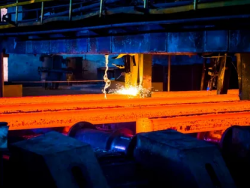This has created what UNESCO describes as a "high-risk scenario" for both producers and consumers in Spain and across Europe, undermining the competitiveness and long-term viability of the Sector.
Current warranty failures
Despite the numerous changes, Unesco argues that the EU's protection measures have been ineffective. Key data highlights the challenges:
- EU steel consumption has fallen by 16 percent since 2018.
- At the same time, import quotas grow by 23 percent, often exhausted instantly.
- import of processed steel products, including metal structures, electrical components and metal furniture - sorted grades.
Carola Hermoso, CEO of Unesco, issued a stark warning:
"Europe cannot afford a weak trade defense instrument. Without decisive action, unfair imports will flood the market and threaten the entire steel value chain." Calling on the Spanish Government to defend the following proposals in the European Commission:
- reduce imports to 2012/2013 levels
- Apply a 50% tariff outside the quota (similar to the USA), without country exclusions.
- .
- Expand tariff coverage for processed products at risk, without quotas without quotas.
The strategic role of the steel industry
Unesco emphasized that steel remains a strategic industry for Spain and Europe, contributing to:
- . Innovation.
- The leadership of the circular economy in the EU.
The Association calls on Spain to play a decisive role in Brussels, ensuring Europe maintains a fair and balanced framework that protects both producers and users from steel practices.
.





